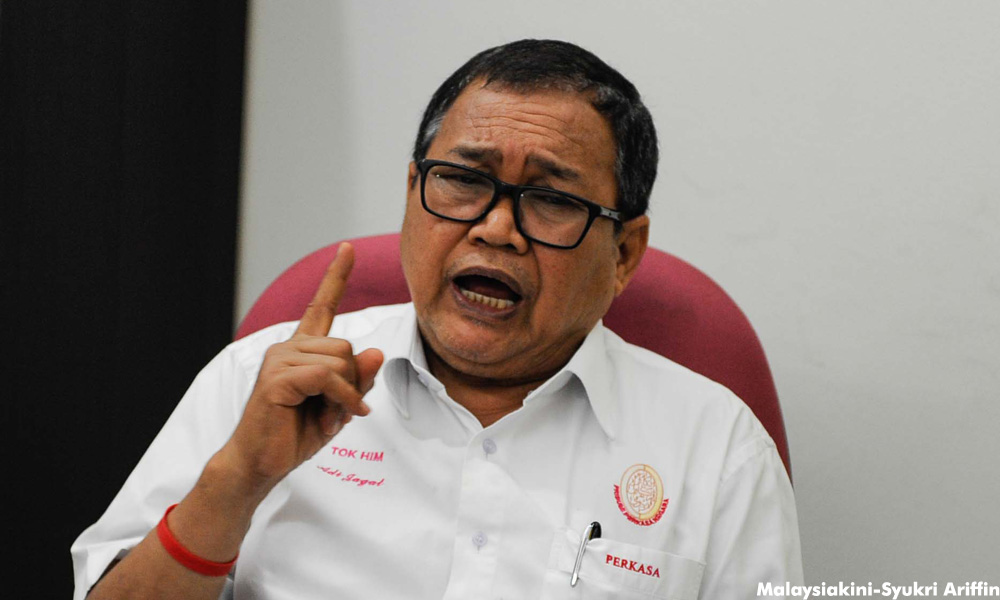
Senior government officials, top civil servants, and judges should make a religious oath (bai’ah) promising not to engage in corrupt activities prior to being sworn into office, said Perkasa president Ibrahim Ali.
Alluding that the rot starts from the top, he suggested that these officials should make an oath at the National Mosque asking Allah to smite them if they engage in corrupt activities, starting from the prime minister.
These should be done before these officials are sworn in before the Yang di-Pertuan Agong, he said.
“People used to say that if a teacher urinates standing, then the students would urinate running. Now the students are not just urinating while running, the teachers are too, so the students are defecating everywhere. What are we to do?” Ibrahim said, paraphrasing a Malay proverb.
“I propose that for a prime minister, minister, deputy minister, or any post that needs to be sworn-in before the Agong, including judges, he would have to make an oath before the (swearing-in) ceremony starting with the prime minister […]
“The same goes for the government chief secretary and secretaries-general. For non-Muslims, we will think of a way. There must be a way to put fear in them,” he added.
He was listing several proposals to help combat corruption during a speech at the Malaysian Anti-Corruption Academy (MACA) in Kuala Lumpur today, where Perkasa also signed its Corruption-Free Pledge before Malaysian Anti-Corruption Commission (MACC) officials.
The Perkasa members present not only vowed to refrain from corrupt activities, but to also despise the crime, and to report it immediately if they have any information.
Ibrahim told reporters that he would instruct state-level Perkasa leaders to organise similar events to sign the pledge.
In his speech today, Ibrahim also reiterated several of Perkasa’s proposals to combat corruption, which had been endorsed at its annual general meeting in January.
These include mandatory corporal punishment of at least one lash of the rotan for corruption convicts, and detention without trial of up to 60 days for suspects.
He added that MACC should report directly to the parliament, and corruption cases should be prosecuted from a new prosecution service that is separate from the Attorney-General’s Chambers.
Speaking to reporters later, MACC public education division director Abdul Samat Kasah said he personally welcomes any suggestions that are deterrent in nature, to ensure corruption does not take place.
As an agency, he said the MACC would implement any ideas that are well-received by the people and consequently have been adopted by the government as part of its anti-corruption policy.- Mkini



No comments:
Post a Comment
Note: Only a member of this blog may post a comment.